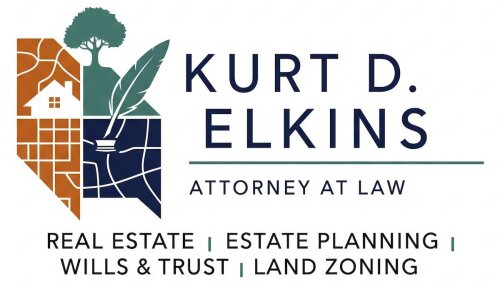Best Housing, Construction & Development Lawyers in Texas
Share your needs with us, get contacted by law firms.
Free. Takes 2 min.
Free Guide to Hiring a Real Estate Lawyer
Or refine your search by selecting a city:
List of the best lawyers in Texas, United States
About Housing, Construction & Development Law in Texas, United States
Housing, Construction & Development law in Texas encompasses a wide range of legal issues related to residential and commercial properties. This area of law governs everything from the rights and responsibilities of landlords and tenants, to building codes, property development, construction contracts, and land use regulations. In Texas, unique legal considerations often arise due to the state's size, diversity, and rapidly growing cities, making it crucial for individuals and businesses to understand the legal landscape governing property development, leasing, and construction.
Why You May Need a Lawyer
There are many situations where legal advice or representation is essential in the field of Housing, Construction & Development. Common scenarios include disputes between landlords and tenants, issues with construction defects, contract disagreements between property owners and builders, zoning and permitting challenges, and navigating homeowners association regulations. If you are facing eviction, have concerns about property boundaries, are developing a new property, or are involved in construction or renovation projects, an experienced lawyer can help protect your interests, ensure compliance with state and local laws, and resolve conflicts efficiently.
Local Laws Overview
Texas has its own set of laws and regulations that impact the Housing, Construction & Development sectors. Key legal aspects include the Texas Property Code, which outlines landlord and tenant rights, residential and commercial leasing rules, and eviction procedures. Building codes in Texas may vary by city or county, often adopting versions of the International Building Code with local amendments. Construction law is also shaped by regulations on licensing contractors, lien laws designed to protect payment rights, and statutes governing construction defects. Zoning laws and land use regulations are generally set at the municipal or county level, with each locality developing its own rules for property development, use, and subdivision. Understanding both statewide and local requirements is crucial for compliance and successful property projects.
Frequently Asked Questions
What are my rights as a tenant in Texas?
Tenants in Texas have the right to a safe and habitable property, protection against landlord retaliation, privacy, and notice before eviction. The Texas Property Code details these rights and the procedures landlords must follow.
Do I need a permit to build or renovate my property?
Most construction, expansion, or major renovation projects require building permits from your local city or county. It is important to contact your jurisdiction’s building department before starting work to ensure compliance.
How are construction defects handled in Texas?
Texas law provides property owners with remedies if construction defects are discovered. The Residential Construction Liability Act requires notice to the builder and allows for repairs or compensation, depending on the defect’s severity and the contract terms.
What are mechanics’ liens and how do they work?
A mechanics’ lien is a legal claim against a property by contractors, subcontractors, or suppliers who have not been paid for labor or materials. Texas has strict notice and filing requirements for enforcing liens, so timely action is important.
Can landlords evict tenants without cause in Texas?
Landlords in Texas can generally evict tenants after the lease ends or for specific reasons outlined in the lease. However, legal notice and proper court procedures must be followed.
What is the difference between zoning and land use laws?
Zoning laws divide areas into different uses, such as residential, commercial, or industrial, and regulate what can be built where. Land use laws are broader, governing overall property development and usage.
Do homeowners associations have legal authority in Texas?
Yes, homeowners associations in Texas have the authority to enforce deed restrictions and community rules, provided these are consistent with state law and the association’s governing documents.
When is a written contract required for construction in Texas?
While not all building projects legally require a written contract, having one is highly recommended. Texas law does require written contracts for home improvements over a certain value, and for protection under lien laws.
What is eminent domain and how does it affect property owners?
Eminent domain allows governmental entities to take private property for public use, provided the owner is offered fair compensation. Owners can challenge the taking or the amount offered in court.
How can disputes in construction projects be resolved?
Disputes can be resolved through negotiation, mediation, arbitration, or litigation, depending on the terms of the contract and the willingness of parties to settle. Legal advice is important to understand available remedies.
Additional Resources
If you have questions or need guidance, the following resources can be helpful:
Texas Department of Housing and Community Affairs - Oversees housing programs and provides resources for tenants and homeowners. Texas Real Estate Commission - Regulates brokers, agents, and real estate transactions. Texas Comptroller of Public Accounts - Information on property taxes and exemptions. Local Building Departments - Each city or county provides permitting, code enforcement, and inspection services. Texas Attorney General’s Office - Offers consumer protection and landlord-tenant information. Texas Construction Association - Support and information for contractors and builders.
Next Steps
If you need legal assistance with a Housing, Construction & Development matter in Texas, consider the following steps:
- Gather any relevant documents and information related to your situation, such as leases, contracts, notices, or correspondence. - Identify your goals and concerns, such as stopping an eviction, resolving a payment issue, or ensuring compliance with building codes. - Contact a licensed Texas attorney with experience in real estate, construction, or property law. Many lawyers offer initial consultations. - Consider reaching out to local government offices or housing agencies for guidance or referrals. - Take prompt action, as many legal matters have strict deadlines for response or filing.
Navigating Housing, Construction & Development issues can be complex, but with the right legal support and information, you can protect your rights and interests in Texas.
Lawzana helps you find the best lawyers and law firms in Texas through a curated and pre-screened list of qualified legal professionals. Our platform offers rankings and detailed profiles of attorneys and law firms, allowing you to compare based on practice areas, including Housing, Construction & Development, experience, and client feedback.
Each profile includes a description of the firm's areas of practice, client reviews, team members and partners, year of establishment, spoken languages, office locations, contact information, social media presence, and any published articles or resources. Most firms on our platform speak English and are experienced in both local and international legal matters.
Get a quote from top-rated law firms in Texas, United States — quickly, securely, and without unnecessary hassle.
Disclaimer:
The information provided on this page is for general informational purposes only and does not constitute legal advice. While we strive to ensure the accuracy and relevance of the content, legal information may change over time, and interpretations of the law can vary. You should always consult with a qualified legal professional for advice specific to your situation.
We disclaim all liability for actions taken or not taken based on the content of this page. If you believe any information is incorrect or outdated, please contact us, and we will review and update it where appropriate.
Browse housing, construction & development law firms by city in Texas
Refine your search by selecting a city.














